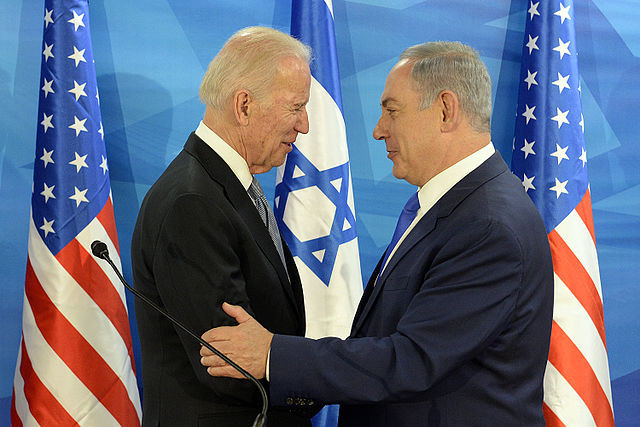The Biden administration has issued a stark warning to Israel, demanding that it take immediate action to improve the humanitarian situation in Gaza or risk jeopardizing future U.S. military assistance. In a letter sent on October 13, Secretary of State Antony Blinken and Secretary of Defense Lloyd Austin outlined a series of measures Israel must implement within 30 days, emphasizing that failure to comply could lead to a reevaluation of U.S. aid.
The letter, addressed to Israeli Defense Minister Yoav Gallant and Minister of Strategic Affairs Ron Dermer, is the strongest message yet from the U.S. to its key Middle Eastern ally since the latest escalation in Gaza. It reflects the growing pressure within the Biden administration to balance support for Israel's military actions with compliance to international humanitarian standards.
"We have deep concerns about the current situation," the letter states, urging Israel to take "urgent and sustained actions" to reverse what the U.S. describes as a worsening humanitarian crisis. The administration highlighted that aid delivery to Gaza has plummeted by over 50% since spring, with September recording the lowest level of humanitarian assistance in over a year.
This letter marks a significant shift in tone and urgency, building on previous warnings sent earlier in the year. In April, a similar communication led to constructive changes from Israel, but subsequent setbacks have prompted the U.S. to escalate its demands. According to a senior defense official, the administration hopes that this latest effort will yield concrete measures similar to those taken in response to past concerns.
The Biden administration's list of demands is extensive. Israel must allow at least 350 trucks per day to enter Gaza through four major crossings, with the addition of a fifth crossing to be opened. The U.S. also called for humanitarian pauses to allow aid organizations to distribute food, medicine, and vaccines for at least four months, ensuring access to essential services amid ongoing conflict.
The letter further emphasized the need for Israel to enhance security for humanitarian convoys and to facilitate the movement of people from Gaza's densely packed Al-Mawasi humanitarian zone inland before winter. Additionally, the U.S. requested that Israel ensure full operational capacity for the Jordan Armed Forces corridors, crucial for aid delivery.
Despite the stern tone of the letter, the U.S. has maintained its military support for Israel in recent months. In May, President Biden initially withheld the delivery of munitions to prevent an escalation but later announced a $1 billion arms package following an Israeli offensive in Rafah. The administration's continued support includes deploying advanced air defense systems and troops to Israel amid rising regional tensions.
The U.S. administration's message underscores the delicate balance between supporting Israel's right to defend itself and ensuring humanitarian aid reaches the Palestinian population in Gaza. A U.S. State Department spokesperson confirmed that the letter represents a "private diplomatic communication," aimed at securing a prompt response from Israel. The official stressed that the timeline is not related to the upcoming U.S. presidential election but was chosen to give Israel time to address the outlined issues.
Israel's initial response indicates that it is taking the U.S. concerns seriously. The day after the letter's release, COGAT, the Israeli agency managing aid flows into Gaza, posted images of aid trucks entering Gaza through the Erez Crossing. "Israel will continue to allow the entry of humanitarian aid to Gaza's residents while simultaneously targeting Hamas' military infrastructure," the agency stated.
While Israel asserts it is not obstructing aid deliveries, the U.S. and international organizations like the United Nations have raised concerns. The UN's World Food Programme recently reported a dire situation in Gaza, with food insecurity affecting hundreds of thousands of people. UN officials have warned that Israeli military operations are exacerbating the crisis, leaving many civilians without access to basic necessities.
The Biden administration's letter details several Israeli actions that have worsened the humanitarian crisis, including restricting commercial imports and imposing stringent customs requirements for aid organizations. "We are particularly concerned that recent actions by the Israeli government... are accelerating the deterioration of conditions in Gaza," Blinken and Austin wrote.
The U.S. has also called for a new dialogue mechanism to discuss civilian casualties, proposing an initial meeting at the end of the month. The Biden administration cited U.S. laws that could restrict military assistance to countries obstructing U.S.-sponsored humanitarian aid, highlighting that Israel's compliance is crucial for continued support.
The current escalation in Gaza follows Hamas' attack on southern Israel in October, which killed around 1,200 people and led to the capture of 251 hostages. Israel has since intensified its military operations, particularly in northern Gaza, leading to a growing humanitarian crisis as the Israeli military continues to call for evacuations to the southern region.






